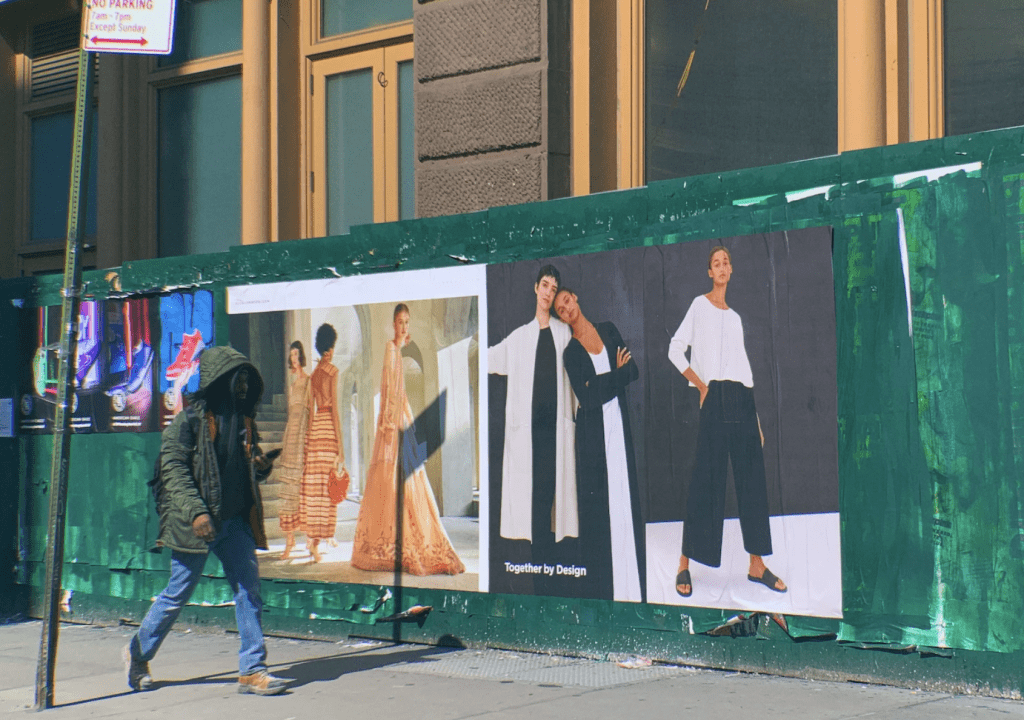A new trendsetter emerged in the fashion industry. Artificial intelligence (“AI”) has been used in the fashion industry for years to analyze data, predict trends, and improve customer service. However, the recent rapid growth and evolution of AI has taken these use cases to new heights. For perspective, AI is projected to generate at least $150 billion in the apparel, fashion, and luxury sectors’ profits in the next three to five years, according to projections from McKinsey. This shift signifies not only a change of tool and technique but a reimagining of fashion at its core. How does AI do it?
AI’s prowess in predictive analytics is like a crystal ball for fashion trends. By meticulously analyzing past consumer behaviors, purchase patterns, and historical and global fashion trends, AI can equip designers and brands with foresight, allowing for tailored collection planning and aligning production with potential market demand. The result? A dynamic synergy between consumer desire and fashion supply that minimizes excess inventory and maximizes appeal. AI’s role in transforming inventory management into a smart, responsive system cannot be overstated. It finely tunes supply chains, ensuring that production aligns closely with demand, and in the process, addresses one of the fashion industry’s most pressing issues: sustainability.
Personalized shopping experiences have also been revolutionized, with AI stepping in as a personal stylist using complex algorithms to analyze a customer’s prior purchases, browsing history, and even social media activity. This data enables brands to offer highly personalized recommendations, transforming every shopping experience into an individual journey. As a result, brands can benefit from enhanced customer loyalty and a deepened sense of connection with their customers, as shoppers feel uniquely understood and catered to.
AI’s role in design and manufacturing is equally transformative. By assisting designers in generating novel patterns and automating certain aspects of the production process, AI acts as both muse and machinist. This dual role not only streamlines production but also opens the doors to unprecedented creative possibilities, challenging the traditional boundaries of fashion design. For example, AI can convert sketches, descriptions, fabrics, and collages of different photos into complex and elevated designs, enhancing the entire process.
At the same time, AI’s impact on promotional and advertising campaigns is similarly profound. AI tools can now be found at the forefront of creating imaginative and engaging multimedia content. From generating visually appealing images to crafting entire virtual fashion shows, AI is driving creativity in fashion marketing. This shift brings unparalleled efficiency, allowing brands to produce innovative campaigns at an unprecedented pace. However, it also introduces challenges, such as maintaining brand authenticity and originality in an AI-dominated landscape and avoiding bias tendencies inherent in AI algorithms. Equally important is the ethical aspect, including the need to clearly label AI-generated content to avoid misleading consumers. Fashion brands must navigate these waters carefully, balancing AI’s creative potential with a commitment to transparency and originality.
Some brands are already ahead of the curve and embracing AI’s capabilities. Revolve, an e-commerce platform, teamed up with AI studio MAISON.META to showcase collections from the winners of its first AI Fashion Week. This unique collaboration, aligning with AI Fashion Week in Milan, featured over 400 submissions from designers in more than 50 countries. Revolve co-founder Michael Mente highlighted that “technology is a big competitive edge for Revolve” and stated that “through AI, [Revolve is] able to explore new emerging designers, brands, and trends that [Revolve is] known for delivering in unique ways.” The collections, which feature ten to twelve styles in a range of sizes and prices, represent a groundbreaking union of AI and fashion design.
Another innovative retailer, SSENSE, introduced a generative-AI chatbot – a step ahead in the realm of AI-driven personal styling. Unlike other chatbots, SSENSE’s version integrates directly with ChatGPT Plus, allowing users to access styling advice and product links from its inventory. This chatbot, using OpenAI’s technology combined with SSENSE’s proprietary AI models, represents a shift towards more interactive and intelligent online shopping experiences. Using AI-driven chatbots signifies a broader trend among retailers like Shopify, which are aiming to enhance online shopping with conversational AI that mimics a human sales associate.
H&M Group’s Creator Studio also unveiled another generative AI-powered tool for custom clothing creation that allows customers to design apparel using AI-generated artwork from text inputs. The resulting designs can be instantly purchased or sold, leveraging H&M’s global fulfillment infrastructure. H&M’s new tool democratizes fashion design, making fashion design accessible to individuals without specialized skills or tools. However, AI also brings forth challenges related to potential intellectual property misuse, which H&M says that it addresses through a mix of human moderation and technology.
These examples, which highlight the diverse applications of AI in fashion, from design and personal styling to democratizing fashion creation, further demonstrate the industry’s evolving landscape that not only drives innovation but also raises new challenges and opportunities.
Though the fashion industry is enjoying the fruits of AI’s labor, it does not come without a cost, with AI posing a number of challenges that range from potential infringement to issues on the right of publicity front.
Copyright Eligibility in AI-Generated Designs (“Outputs”): One of the most significant legal concerns with AI involves the intellectual property rights associated with AI-generated designs. As AI tools become more adept at creating unique patterns and styles, questions arise about the ownership and copyright of these designs. Who holds the copyright: the AI system itself, the fashion brand that provided the patterns and textiles, or the designer who inputs the initial parameters? The current legal framework lacks clear guidelines for AI-generated works, leading to ambiguities in copyright eligibility and infringement. This may necessitate a reexamination of copyright laws to consider and protect AI-generated fashion designs adequately.
Trademark Infringement and Brand Protection: In their quest to learn and create from existing designs, AI algorithms could unintentionally replicate trademark-protected elements, leading to infringement issues. This not only concerns AI developers but also fashion brands that might inadvertently use AI-generated designs that infringe upon others’ trademarks. Fashion entities that are making use of AI technologies must develop checks and balances to prevent such infringements and to continue protecting their brand identity.
Data Privacy and Consumer Protection: The use of AI in personalized shopping and trend forecasting relies heavily on consumer data. This raises significant data privacy concerns, especially considering laws like the General Data Protection Regulation (“GDPR”) in Europe and the California Consumer Privacy Act (“CCPA”). Fashion brands must ensure that their AI systems comply with privacy regulations by securing consumer consent, maintaining transparency in data usage and safety, and ensuring that AI recommendations do not mislead consumers or expose them to unnecessary risks.
Publicity Rights of Models, Brand Ambassadors & Talent: The emergence of AI technologies, such as deepfakes and digital avatars, challenges the publicity rights of individuals in the fashion industry and beyond. These advancements have blurred the lines between reality and virtual representation, creating legal grey areas. The rise of AI in fashion marketing is also reshaping contract negotiations. Models and influencers now need to be aware of how their images might be used or altered by AI technologies.
The importance of publicity rights in the fashion industry has been dramatically underscored by the recent strike by the Screen Actors Guild‐American Federation of Television and Radio Artists union. This action, driven by concerns over the use of AI technologies, highlights a critical issue: the impact of AI on the rights and livelihoods of models, actors, and other talent. The strike serves as a cautionary tale, emphasizing the need for clear legal frameworks and fair compensation models to address the use of an individual’s likeness in AI-generated content.
The future of AI in fashion is filled with promise and challenges. We can expect further advancements in AI-driven design where AI not only empowers designers’ abilities but also autonomously creates entire collections. As AI continues to develop, staying informed of technological advancements and the accompanying legal landscape is crucial for industry stakeholders. Embracing AI’s potential while navigating its challenges will be key to success in this new era. The fusion of AI and fashion is not just a transient trend, but a fundamental paradigm shift in the future of fashion.
Gai Sher is senior counsel in the Innovation and Technology practice group, as well as the Corporate & Business and Entertainment & Sports practice groups at Greenspoon Marder LLP.
Ariela Benchlouch is an Associate in the Corporate and Innovation and Technology practice groups at Greenspoon Marder LLP.











